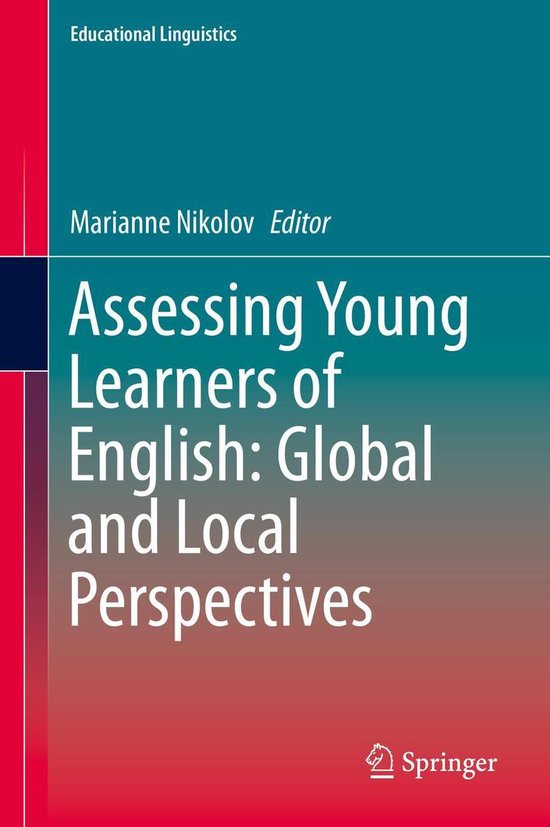Educational linguistics 25 assessing young learners of english global and local perspectives

Direct beschikbaar
This volume documents international, national, and small-scale testing and assessment projects of English language education for young learners, across a range of educational contexts. It covers three main areas: age-appropriate ‘can do statements’ and task types for teaching and testing learners between the ages of 6 to 13; innovative approaches to self-assessment, diagnostic testing, self- perception, and computer-based testing; and findings on how young learners perform on vocabulary, listening, speaking, pronunciation, and reading comprehension tests in European and Asian contexts.
Early language learning has become a major trend in English language education around the globe. As a result of the spread of teaching English to a growing number of young children, assessment of and for learning have emerged as key issues. In line with this development, there is a clear and emerging need to make early language programs accountable and to assess both the progress children makeover time and to quantify their achievement at various stages of development. This volume informs stakeholders about the realistic goals of early language learning, their efficiency, and how much progress children make over time.
- 1 Bekijk alle specificaties
Taal: en
Bindwijze: E-book
Oorspronkelijke releasedatum: 29 oktober 2015
Ebook Formaat: Adobe ePub
Illustraties: Nee
Hoofdauteur: Nikolov Marianne
Hoofdredacteur: Marianne Nikolov
Hoofduitgeverij: Springer
Lees dit ebook op: Android (smartphone en tablet)
Lees dit ebook op: Kobo e-reader
Lees dit ebook op: Desktop (Mac en Windows)
Lees dit ebook op: iOS (smartphone en tablet)
Lees dit ebook op: Windows (smartphone en tablet)
Studieboek: Ja
Verpakking hoogte: 26 mm
EAN: 9783319224220